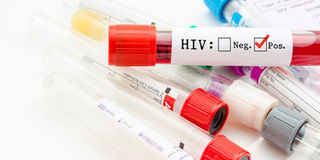Yes; you can have a healthy baby even when HIV positive

What you need to know:
If having a baby is one of your dreams, HIV does not have to stand in the way. Thanks to advances in treatment and pre-natal care, the risk of mother-to-child HIV transmission has been minimised.
Sexual reproductive rights, including access to family planning services, is a right for every woman living with HIV.
HIV does not take away a woman’s right to freely and responsively decide on the number and spacing of her children and have access to information, and the means to enable her exercise these rights.
A report by the International Community of Women Living with HIV Eastern Africa (ICWEA), states that women experience violations of these rights include forced abortion and sterilisation, limited access to comprehensive sexual reproductive health and rights programmes, stigma and discrimination.
Joyce Nakato* one of the victims of forced sterilisation narrates, “I was sterilised in 2010 at the age of 23 years in the hospital.
“My sister took me to the doctor when I was due to give birth. My sister met the doctor and they talked in private. I did not request for sterilisation but my sister told me the doctor had recommended it. I was not given any information about the procedure and I did not have an opportunity to ask any questions. I found out later what was done when I went to Joint Clinic Research Centre for a check-up. The machine showed that my fallopian tubes were cut. I had not been told and did not sign a consent form.”
Lillian Mworeko, the executive director, ICWEA says, “Most East African countries have Bills that criminalise people living with HIV yet there is no public health evidence that this will be effective at ending the spread of HIV.
Some of the clauses in the Bills infringe on the rights of women living with HIV and discourage people from seeking diagnosis and treatment out of concern for their privacy or negative repercussions.”
The good news, however, is that if an HIV positive mother takes her ARVs consistently, she can have an HIV negative baby.
Twenty two-year-old Sylvia Nalukwago is a receptionist at the National Forum of People living with HIV/AIDS Networks in Uganda (NAFOPHANU). Despite the fact that she and her partner are HIV positive, her five-months old baby is not.
Her experience
Although I am HIV positive, I know my sexual and reproductive health rights and I can make a decision on when I can have a child and I take the responsibility that I do not affect my baby by taking ARVS consistently.
I found out I had HIV when I was 15 years. My mother had died but my father is still alive but I was living with my aunt. I was sick all the time. I think my aunt knew but she was afraid to tell me.
One time in 2008, she took me to Kamwokya Christian Caring Community for an HIV test. When the counsellor said I was HIV positive, I was scared because I thought I was going to die.
I am the last born of three children. I was born with HIV and have learnt to live with it.
Starting treatment
I started taking Septrine tablets in 2008 after the doctor convinced me that this was the only way through which I would live a healthy life. I would take one tablet every morning before I went to school until 2011.
In 2011, I started taking first line ARVs but I was resistant to them. The doctor put me on second-line drugs because my CD4 count was so low that I needed immediate change before I got a problem.
In 2013, I met my partner at an organisation for young positive people. Yes he is also HIV positive. We knew about each other’s status from the start.
When I conceived last year, he was supportive and encouraged me to take my drugs and we went together to the health facility for antenatal care.
The baby equation
We got extensive education on the Elimination of Mother to Child Transmission (EMTCT) programme and the doctors insisted that I deliver from a health facility and that I consistently take my ARVs so that my viral load is suppressed in order for me to have an HIV negative baby.
The EMTCT educators advised me to exclusively breastfeed the baby for six months and then give other foods but continue breast feeding for two years.
The baby cannot get the virus through breast milk if the mother is consistently taking her medicine.
This is because the ARVs effectively suppress the virus from the blood and body fluids but it hibernates into the bone marrow but returns if the medicine is not taken consistently.
*Name changed to protect her identity.




